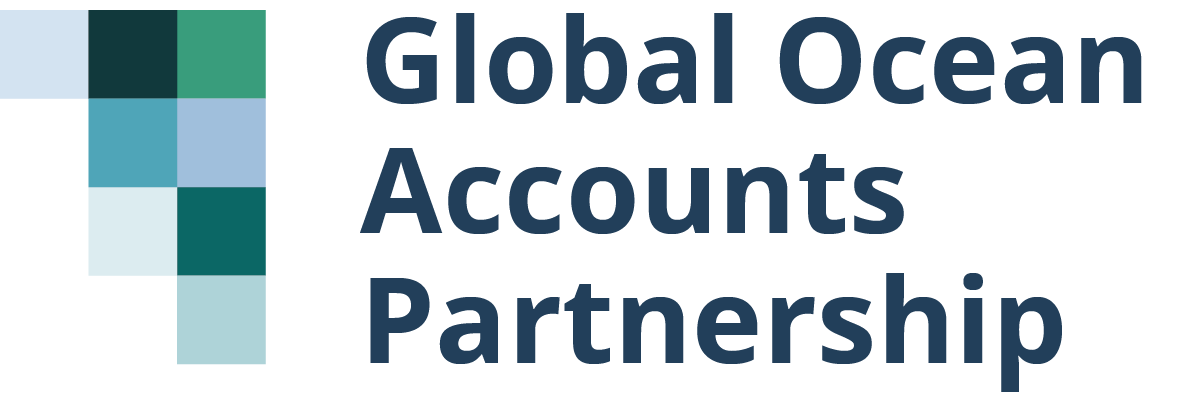As an archipelago of 1,192 low-lying coral islands, the Republic of the Maldives is a recognised marine hotspot, welcoming 1.6 million tourists annually to enjoy its natural beauty. In the Maldives, coral reefs, beaches, and marine life are some of its most valuable natural assets, providing economic benefits through fisheries, tourism and shoreline protection. These marine and coastal ecosystems, however, are increasingly at risk from pollution, overfishing, climate change and habitat destruction.
Through a new project, the Government of the Maldives are looking to improve the health of these “natural assets” through natural capital accounting to ensure the long-term economic, social, and environmental viability of the Maldives' blue economy.
Natural Capital Accounting
Natural capital accounting describes efforts to use an accounting framework to systematically measure and report on the state or ‘health’ of natural capital and the contributions these assets provide society and the economy. Natural capital accounting is increasingly recognized as a critical tool for measuring the importance of nature to guide the sustainable development of the blue economy. By quantifying these benefits in monetary terms, natural capital accounting can help decision-makers understand the trade-offs and impacts of different development scenarios and policies on the environment and human well-being. For example, by understanding and valuing the benefits of coral reefs, policymakers can identify and prioritise the most impactful investments in coral reef conservation and restoration programs. This could focus on improving water quality and reducing the impacts of overfishing or other activities that lead to the long-term recovery and resilience of the reefs.
Enhancing the Resilience of Maldives’ Coastal Resources
The Maldives’ Enhancing National Development through Environmentally Resilient Islands project aims to strengthen the management of Maldives' coastal and marine ecosystems, build resilience to climate change, and promote sustainable livelihoods for coastal communities. This project is a joint initiative of the Maldivian government, UNDP, and the Global Environment Facility. A component of the project is to enhance capacity for natural capital accounting (utilising the System of Environmental-Economic Accounting: Ecosystem Accounting (SEEA EA) methodology), through a case study of Laamu Atoll, an ecologically sensitive and economically important area in southern Maldives. As Secretariat to the Global Ocean Accounts Partnership (GOAP), the University of New South Wales Sustainable Development Reform Hub has been supporting this initiative by piloting the use of the SEEA EA framework within Laamu Atoll.
Benefits for the Maldives
While there are many potential applications within Laamu Atoll, tourism, seagrass restoration, and finance applications provide important use cases.
- Tourism: The Maldives has one of the highest blue economy ratios worldwide, with tourism accounting for nearly 30% of its GDP. Recovery of the tourism sector after the COVID-19 pandemic has been prioritised by the Government of the Maldives, which has provided support through fiscal packages for recovery. Natural capital is particularly relevant for tourism, where visitors are drawn to the Maldives with the expectation of healthy and vibrant ecosystems and water quality that enables activities such as water sports and swimming. By considering the dependencies of tourism on natural capital such as coral reefs, beaches, and marine life, decision-makers can promote and ensure sustainable tourism practices that preserve the country's unique natural beauty. Additionally, natural capital accounting and other accounting frameworks can help ensure that the benefits of tourism are distributed more equitably, with a focus on increasing jobs for locals and expanding the role of women in the industry.
- Seagrass: Seagrasses are critical marine ecosystems and provide a host of benefits, supporting fisheries by providing nurseries for commercially important species, stabilizing coastal areas (including beaches) and capturing carbon. These benefits are recorded in the natural capital accounts as ecosystem services provided by the seagrass ecosystem. Seagrass meadows are also one of three IPCC-recognised “blue carbon” ecosystems, with studies estimating up to 18% of all blue carbon is captured and sequestered within seagrass globally. The use of natural capital accounts can enable the measurement and monitoring of these ecosystems and the services they provide, serving as an evidence-based tool to enable their protection and further support the achievement of national climate goals. Yet the Maldives is losing seagrasses due to several impacts, including issues of water quality and clearing. A study by the Maldives Underwater Initiative (MUI) identified that potentially ~50% of resorts remove or prune seagrass meadows for aesthetic purposes alone. By quantifying the benefits of seagrass ecosystems in monetary terms, natural capital accounts can highlight the importance of protecting seagrass meadows and provide a compelling economic rationale for conservation efforts. This can help policymakers, stakeholders, and local communities understand the value of seagrass ecosystems beyond their intrinsic ecological importance and motivate actions to protect them.
- Finance: By providing important insights into the value and condition of natural resources and ecosystems, natural capital accounts can inform more effective resource management decisions. This, in turn, can reduce overexploitation and degradation, resulting in long-term cost savings and improved sustainability. By valuing and managing coastal ecosystems, the Maldives can gain potential financial incentives such as reducing the risk of property damage by enhancing natural coastal defences or gaining access to carbon markets. Natural capital accounting can help identify and promote blue economy opportunities in the Maldives, which can generate economic growth and create jobs while minimizing negative environmental impacts. For example, sustainable eco-tourism, marine conservation, and ecosystem-based adaptation initiatives can benefit from natural capital accounting, as they can provide evidence of the economic value of these initiatives and attract investments from public and private sectors. By requiring the measurement and reporting of impacts on natural capital by financial instruments (e.g., loan agreements), natural capital accounting can help to ensure that the benefits of developments are balanced against the costs to the environment and local communities.
Natural capital accounting will be an essential tool for sustainable development in the Maldives' blue economy. By valuing the benefits of ecosystems and understanding the trade-offs of development policies, decision-makers can develop effective strategies to promote the sustainable use of natural resources. Projects like the piloting of SEEA Ecosystem Accounting within Laamu Atoll can be adapted and implemented in other coastal and marine regions to further enhance the management of these ecosystems and provide lessons to apply a natural capital accounting approach across Small Island Developing States. This can lead to more sustainable tourism practices, ensuring the impact of loan agreements, and protecting biodiversity. Natural capital accounting can help measure progress towards sustainable ocean development and promote the long-term sustainability of the Maldives' blue economy while protecting its natural resources for future generations.
For more information
- Global Ocean Accounts Partnership - Natural Capital Accounting in Laamu Atoll
- Enhancing National Development through Environmentally Resilient Islands
Authors: Jordan Gacutan, Senior Research Associate, GOAP, Elizabeth Hollaway, Research Associate and Maria Granada Alarcon Blazquez, Natural Capital Accounting Consultant




